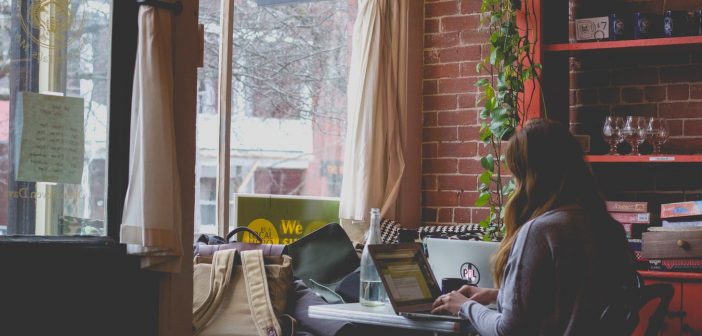The ongoing coronavirus crisis has seen a vast portion of the workforce to start working from home. As the lockdown forces us all to stay home, many businesses have enabled employees to begin remote working in order to keep the cogs turning.
Many of you reading this are now several weeks into this new way of working. But while this means we still are lucky enough to work, this situation also brings with it considerable stress too.
Staying inside all day, working in the same place without leaving the house, can increase anxiety in employees. If you’re struggling, read on to learn a few ways you can reduce stress and anxiety whilst working remotely.
Plan your day and create a routine
For many who have suddenly found themselves working from home, their usual routine has been thrown into disarray. Where before they would have risen at six, gone for a run, walked the dog, had breakfast, and driven to work, they now find themselves forced into a new routine.
But routine is crucial for maintaining mood and reducing stress and anxiety. It gives shape to disorder, giving them a structure upon which they can anchor themselves.
The evidence is there to support it too. Many prisoners who find themselves in solitary confinement for a period find that following a routine keeps them sane in an otherwise challenging environment.
Create a routine for your new remote working situation and stick to it. Rise, eat, exercise, and sleep at the same time every day. This will provide you with the structure, space, and stability you need to stay on an even keel.
Embrace a mindful approach to your day
Once seen as something practiced only by hippies and spiritual types, mindfulness has developed into a bona fide health and wellbeing practice.
Mindfulness is the process of concentrating our attention on the present — focusing on what is happening around us in the immediate sense. This strategy helps distract the mind from any worrying or stressful thoughts.
While it might sound complex, in practice it is quite simple. Any activity can be done mindfully by simply focusing on the actions, processes, and emotions associated with it. Start by focusing on your breathing and the rise and fall of your chest.
But if you’re struggling with this, consider investing in a mindfulness app such as Headspace. These offer guided mindfulness talks that help you build mindfulness into your day.
Also read: How to maximize productivity when working remotely during coronavirus
Consider whether there is an underlying issue at hand
For many people suffering from anxiety while working remotely, the tips outlined here are enough to dispel or reduce that stress. They eventually learn to manage this new way of working and find a way to cope.
But for others, this anxiety may be indicative of a deeper issue. It may be a sign of an underlying mental health issue, of anxiety as a psychological condition rather than a passing mood.
Consequently, more serious cases of anxiety may be best treated with a course of dedicated anxiety medication. If you’re concerned about whether or not medication is the right course for you, speak to a professional.
Propranolol, for instance, is an effective anxiety treatment that is proven to help chronic sufferers control their condition, and propranolol tablets at The Independent Pharmacy, for instance, are available via a private assessment by a qualified medical practitioner.
Medication should only be considered if you have a genuine mental health issue and once all other options have been exhausted. If in doubt, always speak to your doctor.
Make exercise an essential part of your day
Exercise remains one of the best things you can do for reducing stress and anxiety, whether you’re working remotely or otherwise. A solid workout session releases chemicals in the body known as endorphins. These hormones change the way you perceive pain, as well as boosting your mood, similar to the way morphine works on the body.
Naturally, exercising within the confines of your own home can pose challenges — not everyone has a garden, or even green spaces nearby in which they can stretch their legs.
But it is still possible to have a good, intensive workout at home. There are plenty of free workout videos on YouTube that you can follow even in the smallest of apartments. Check out the best workout videos here.
If you aren’t used to regular exercise, it’s important to start small at first. Get used to the process and motions, and then build from there. This provides you with a sustainable workout program that delivers stress-reducing benefits for longer.
Maintain contact with your loved ones
During lockdown, it’s easy to let our usual social routines slip. Without interaction with friends, colleagues, and family permitted by leaving the house, we often find ourselves neglecting our usual social networks without even realizing it.
We might accidentally go days, or even weeks, without speaking to anyone and not even notice it. But this only serves to increase our stress and anxiety.
Social contact is vital for maintaining mood. Even for those individuals who struggle with social situations, staying in touch with close friends and family help keep us grounded. They keep us from staying stuck in our own heads, preventing us from staying stuck in a cycle of negative thoughts.
Consequently, it’s important that you take steps to communicate with friends, family, or colleagues. Try and call your family regularly, and take advantage of video communication tools like Zoom to speak with people.
While this shouldn’t be forced, it is important to maintain contact with the outside world as much as possible.
Keep yourself informed and up-to-date with the world
For many of us, one of the main causes of our stress and anxiety is the fear of the unknown. The coronavirus crisis is unlike anything we have experienced before, and it brings with it all sorts of unknown variables.
This fear is exacerbated by the effects of working from home. We lack the aforementioned contact with friends and colleagues, individuals who might reassure us and offer an objective view of our concerns.
So while staying in touch with loved ones during the crisis is vital while working from home, it’s also worth keeping yourself informed and up-to-date with events yourself. Stay abreast of developments by reading a range of sources.
As well as trusted media publications, look to official medical sources such as the World Health Organization or state or federal governmental websites. By staying ahead of the latest developments, you give yourself a sense of control fostered by trusted and authentic knowledge.
It’s important to note that this strategy might not work for everyone. Indeed, some individuals may find this overload of information more stressful. If this exacerbates your stress, avoid overconsuming the news and stick to only what is necessary for your safety and wellbeing.
Be kind to yourself and set aside time for leisure
Finally, and perhaps most importantly, make time for leisure activities in your day. When you’re working from home, it’s easy to fall into the habit of turning to your laptop during your idle moments.
We live in a society in which the nose-to-the-grindstone approach is revered, but during the lockdown, this should not be the case. This will eventually wear you down and leave you feeling depleted. In short, it is not sustainable.
Taking time out for yourself isn’t an indulgence — it’s a necessity. Make time for leisure activities, whatever they may be. Whether it’s a hobby like painting or crafts, or flopping on the sofa with a movie, if it relaxes you and helps you unwind, it has merit.
Speak to your manager about flexitime too. Employers should be more willing to allow for flexible working hours to account for peaks and troughs in mood throughout the day. It’s not guaranteed, but it’s worth raising with your manager all the same.
The tips outlined above are just a few ways you can help reduce and control your anxiety whilst working from home. Remember that you are not alone in this situation, and by staying in touch with loved ones, looking after your mind and body, and planning your day, you can keep your head above water until circumstances return to normal.






